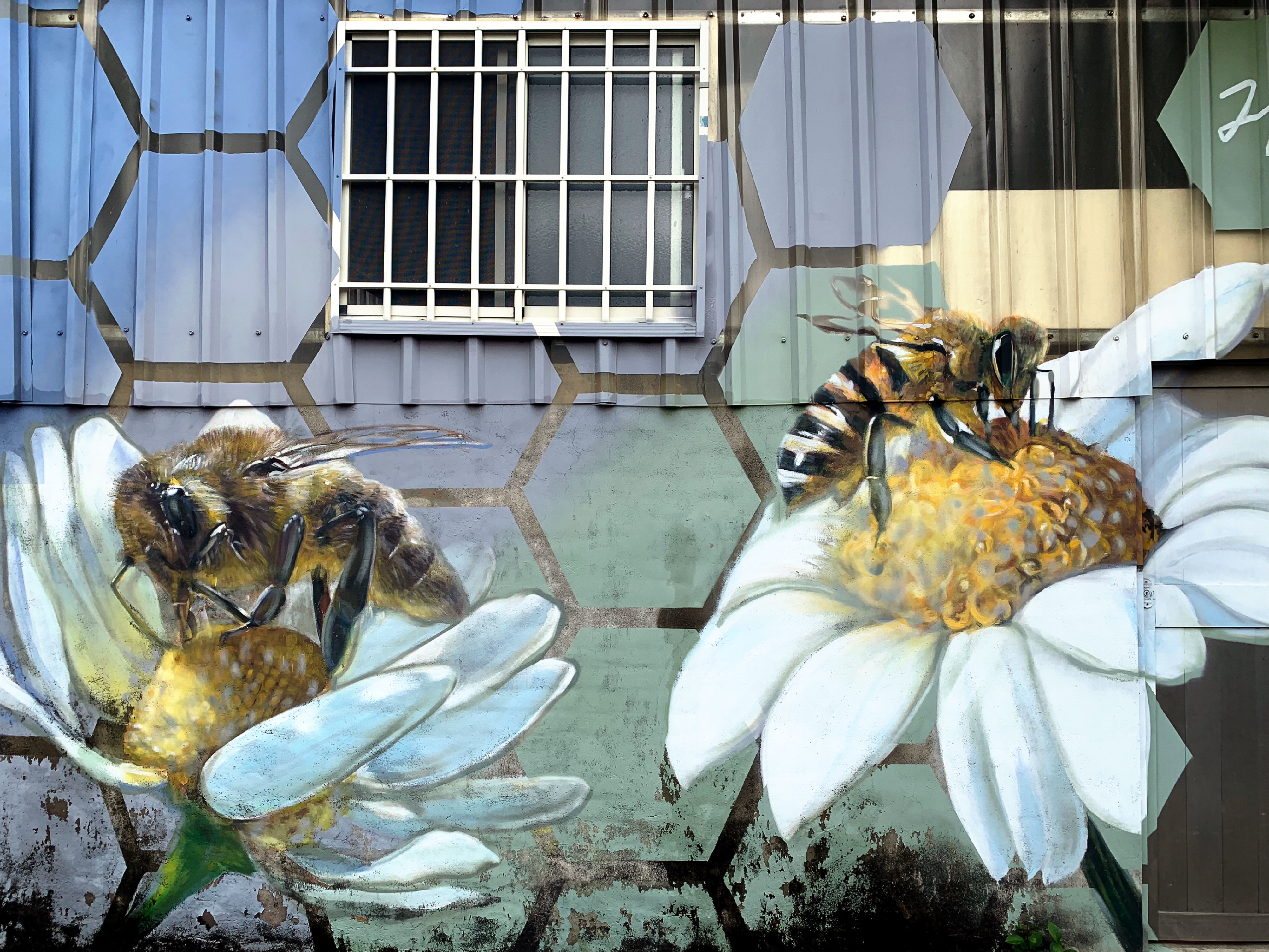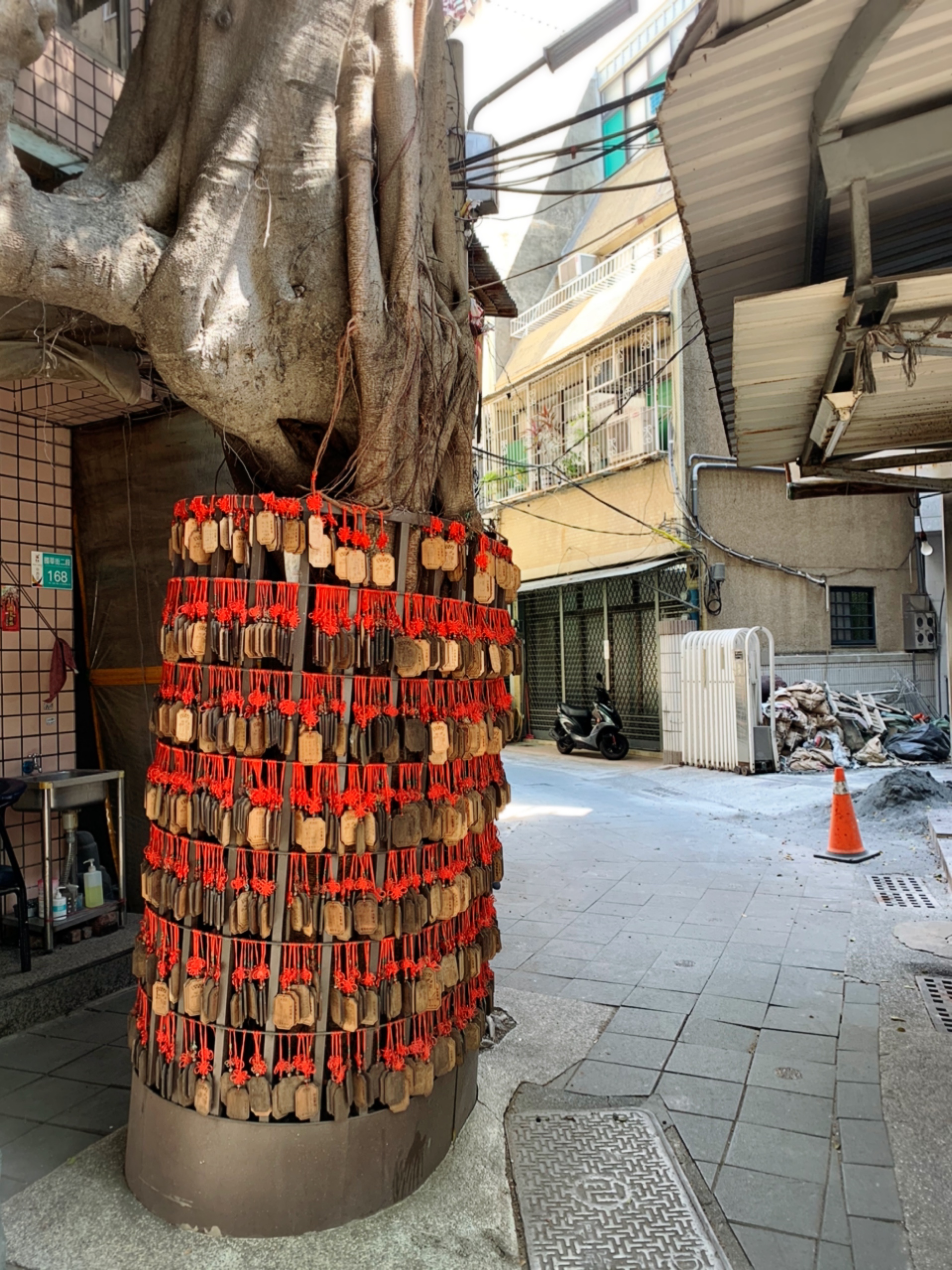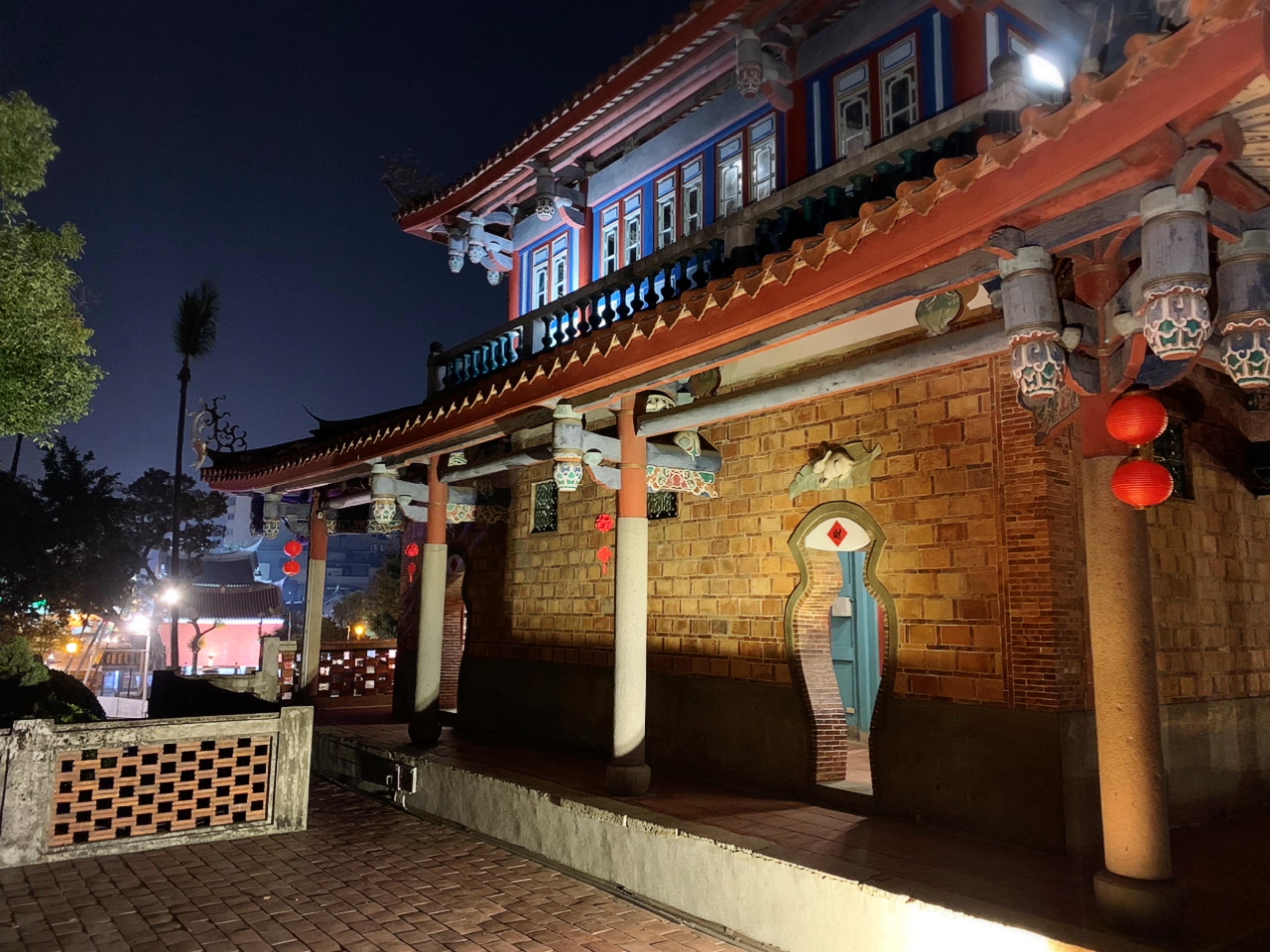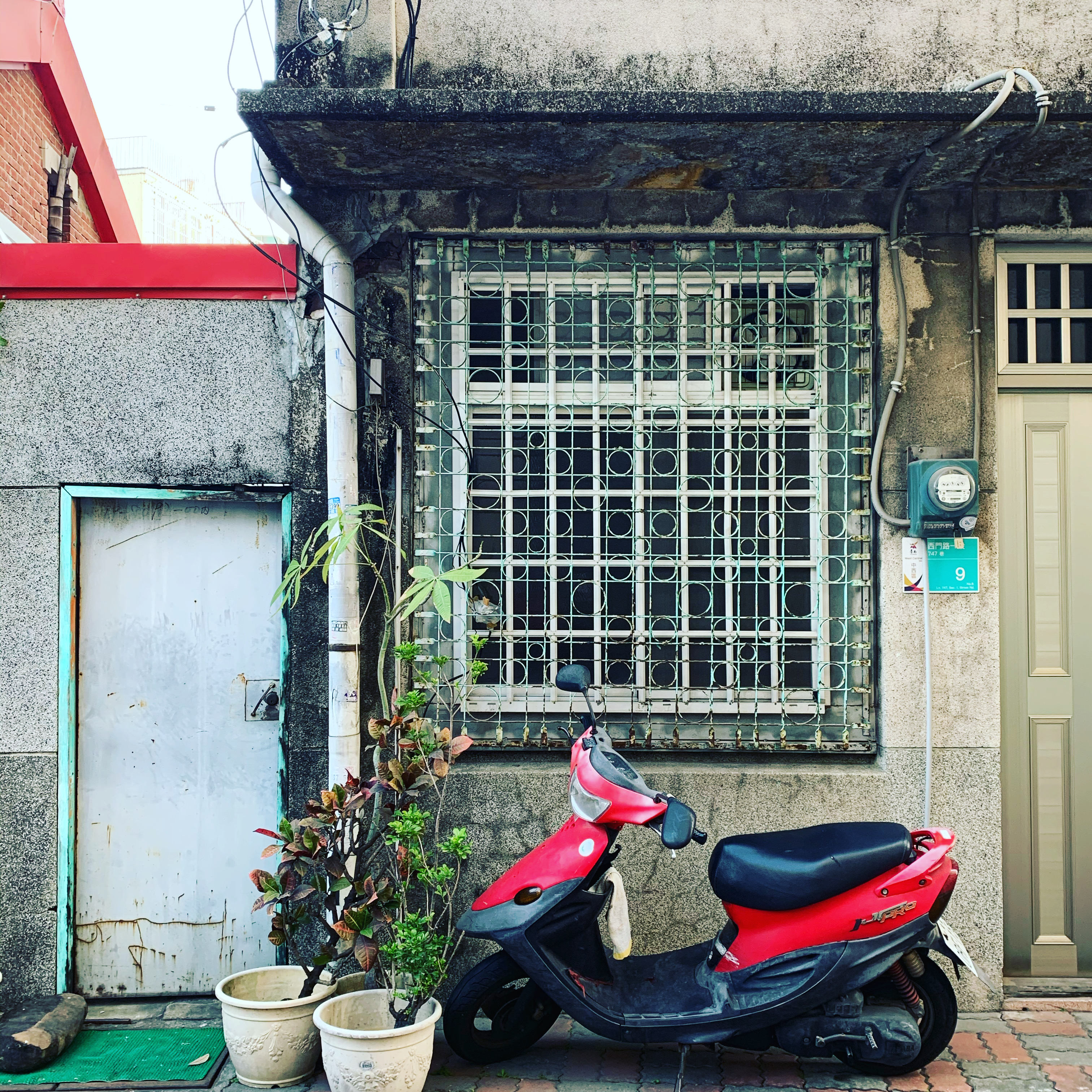"Did you make it to the NGA?" one of my oldest friends asked as I slid into the car near her office in northern Virginia. I'd planned to have lunch with my dad in Maryland and then metro to the National Gallery of Art to stare at James Whistler's Symphony in White for an awkwardly long time, just like I used to do in college. I hadn't even planned on seeing other paintings.
The timing hadn't worked out, though, and like so many missed connections, I lost my chance to see one of my favorite paintings for at least a year.
I wasn't even sure why I'd forsaken a free crash pad in New York City for the trees, school buses and starter homes of northern Virginia, but something under my outer skin of dissatisfaction and inner baseline happiness said that this was where I should be for a few days. It was the site of my last depressive episode late in college, which I'd mistaken for senioritis at the time. I was staying with a friend from that time, and we had plans to Facetime with another. The fourth member of our little group made up my cohort of bridesmaids in 2010 but wasn't available.
Four women who graduated together and remained friends for decades, who'd all taken different trajectories in life. One became a lawyer, married and bought the Falls Church starter home where I was staying. She'd quit her respectable job in an instant if she felt she could. Another became a stay-at-home mom in the Baltimore suburbs. The third got a Master's in early childhood education, married, had two kids, moved to the West Coast, and is now battling mental illness.
And the fourth? She spent a some time in Asia and tried to build a life in DC, but ended up quitting her boring office job with the greige cubicles to move to Taiwan and explore a newfound passion for adult education. She wasn't very good at it at first, but got better over the years. She owns no home and has no children, but lives in a beautiful downtown apartment, speaks Mandarin and spends her double-income-no-kids cash on globetrotting.
Add to that a recent family reunion which involved spending a weekend with a group of people who are mostly related to me but have chosen myriad different life paths. Things I could have done but didn't: doctor, park ranger, entrepreneur, marketing specialist, architect, product director, data scientist, schoolteacher, housewife.
My friends' stories are their own, but all of us seem to have been wondering recently if we'd make different choices if we could go back. Personally, I know I made the right decision to stay childfree, but wonder if all those years of insisting that I'd intentionally not boarded the bus to a better-respected and remunerated corporate job and single family home was a big fat lie: had I missed that bus, and was presenting it as a choice a mere salve for the ego?
It's unclear, but I can say definitively that something is amiss. It's not that I'm unhappy, and certainly I don't want to blow up my life like so many people in their forties who know something is wrong.
I spent these days listening to my college friends' victories and tribulations, wondering if I wasn't a bit jealous -- but of what? If my marriage remains happy and loving, I don't regret not having children, and I like where I live, what exactly is causing this melancholy?
Work is an easy but incomplete answer. I haven't felt long-term challenge or mental stimulation in my career for a few years. The golden period when I was mostly doing teacher training has passed, and with it a series of novel challenges that forced me to be creative and use all my fancy certifications and degrees. The improved pay is gone with it; I still do some, but most of my work now is back to the regular classroom, plus occasional teaching material design.
Even though I find it a bit easy as I've done it for so long, that would be fine if I felt I was bringing in a satisfactory salary and professional recognition. As I watch others in my social circle get promotions and earn progressively more money, I'll admit I do feel a bit trapped. I guess I thought my work would evolve into something more, with more challenge and money attached. It never did, at least not enough.
This isn't something I could have imagined saying even two years ago, when I was mostly doing teacher training and would have said without hesitation that teaching was a passion. Someone I saw as a mentor at the time assured me that the job can evolve, and with that you'll have both fulfillment and more financial security. The fact that teaching simply doesn't pay all that well compared to most other white-collar (and quite a bit of blue-collar) work was fine when it was a calling, a passion, a fulfilling occupation that gave life meaning.
But when it started to get a little stale, a little this again?, I started asking myself why I chased a poorly-paying passion over corporate whoredom. If sustained passion for work is a lie, and I'm not going to be wholly fulfilled or challenged by my job even if I reach for that unicorn, then why did I limit myself like this?
I could have been a musician. I was good once, or so I'm told. I studied International Affairs; I could have been an analyst. It's too bad I don't respect the bad ones, and most of them are bad. I could have done anything else, but I chose teaching. Now, I'm not sure why.
The truth is, while I once would have clung to teaching no matter what, right now I'd quit without hesitation if something more challenging with better pay popped up. I don't know if this is a fleeting thought or a more permanent disillusionment.
It does go a little deeper than mere work woes: I have ADHD and anxiety -- now fully diagnosed but only somewhat successfully treated -- so just about everything rots on the vine for me eventually. I get distracted or bored, and struggle to engage fully. I could have worked my ass off in that greige office for a promotion, or rather, I couldn't because my staticky, undiagnosed brain refused to care despite consciously knowing that I should. Perhaps my falling out with teaching as a passion and career choice is just another in a string of dots I simply cannot connect.
I want more money and more challenge, but if you asked me what actual thing I want to do, well, I haven't got a goddamn clue. I'm not sure I ever will -- how does the old quote go? I have no dream job, I do not dream of labor.
Perhaps I would have made different choices if I'd gotten diagnosed earlier rather than flitting to the next dopamine hit, the next challenge, the next country, the next set of coursework, the next language. Hell, I can't even concentrate on Mandarin and have abandoned it for Taiwanese because it's more fun, more in line with my politics and a hell of a lot harder.
This is complicated heavily by my choice of home. I don't want to leave Taiwan. My husband and this country are the two best things about my life. As someone who's always sought a meaningful vocation, this is hard to admit. So my marriage and my home now mean more to me than my career success? In 2002, Depressed Senioritis Jenna would have never guessed.
But what else exactly can I do if I don't leave Taiwan? There are office jobs if you speak Mandarin (and often if you don't), but I don't specifically want one. In fact, The lack of reasonable time off alone sours that idea. I can't point to any specific perks such a job would offer beyond a more stable (but not necessarily high) salary, but there sure are a lot of drawbacks.
Even if I do leave Taiwan, I'm not sure what I'd do exactly. I have certainly limited myself as a teacher; every time a friend or family member brings up what I might do if I returned to the West, they describe a life which is a marked step down.
That's privilege, of course. Living in Taiwan provides the privilege of a good life as a slightly-bored freelancer, and that is in no small part due to whiteness, foreignness, or both.
One of those friends called it privilege without compunction. She pointed out that all of us are struggling in some ways and killing it in others. Those who are grinding at work might have unhappy marriages. Happily married couples face different challenges as parents. I agreed about the privilege but pointed out that I'm doing okay, but not as well as I'd hoped. I've wanted to be a homeowner for some time, but am priced out of just about every market. We have retirement savings, but not enough. In fact, it will never be enough. That's not hyperbole; I've done the math. I'm on this wheel forever.
"You live downtown in that gorgeous space and travel the world. You're doing fine," she said.
A cousin at the family reunion expressed her admiration for how "accomplished" I am. The compliment felt good in the way getting a tattoo feels good: an endorphin rush from a million tiny needle pricks. I couldn't figure out how exactly I was accomplished, at least compared to the impressive careers of my relatives. I'm a freelancer in Taiwan with a lot of hobbies who hasn't done much with her life.
Of course I didn't say this, and my cousin probably thinks I genuinely am accomplished, rather than just being some white rando who loves Taiwan, has lost her passion for her work, and is learning two languages. Maybe she's even right in a sense, but I couldn't tell in what sense. I have no idea how to come to terms with my own convoluted deixis.
Being privileged but kinda sad is a trope, and often a pathetic one. It makes me think of a wealthy '50s housewife hopped up on barbiturates, washing the dishes as she stares out the kitchen window. But then there's that viral meme about how great it would be to vacuum the house while high on quaaludes like our ancestors. Honestly, some days it doesn't sound all that bad.
The friend I stayed with -- the lawyer with the starter home -- has recently lost a massive amount of weight. That too is her story to tell, but it's more complicated than a straightforward celebration. She described a very unlike-her fantasy of moving out to a McLean McMansion to start her Hot Wife Life: yoga pants, Stanley cup, the lot of it.
The Jenna who lives in Taiwan and has a lot going on in her life joked that she'd need a horrible pyramid scheme "job" to complete the tableau. The anxious Jenna whose career seems to have stalled and who never feels quite secure regarding money sees the appeal.
On my last night in Falls Church, three of the old college gang were sharing memories. I love a good Terrible People story, so I talked about a Halloween party so bad that I took my bottle of cheap tequila home because I didn't want someone dressed as a sexy honeybee who was destined for the Hot Wife Life to have it.
Another recalled briefly dating my then-best friend (we no longer speak; it's for the best). The third asked if we remembered the time I bought a CD single of Live's Lightning Crashes at Eastern Market, an old song even at the time, and we laid on the floor in my Rosslyn apartment listening to it on a loop.
All I could do was exclaim that I couldn't imagine having bought a Live CD, but apparently I did. It reads a bit hokey now, a tad cringe, but then we were all cringe back then.
But you know what has buoyed my maudlin thoughts on this train to New York, where I'll catch a plane back to Taiwan and a life I'm eager to return to while also feeling a little depressed about? A cringe 90s song about confusion setting in and forces pulling from the center of the Earth again.
It's the perfect lament for four hours gliding along a single track toward a final, immutable destination, alongside so many other inconsequential humans skittering like hard-shelled bugs to the myriad consequences of our privilege and our choices.















